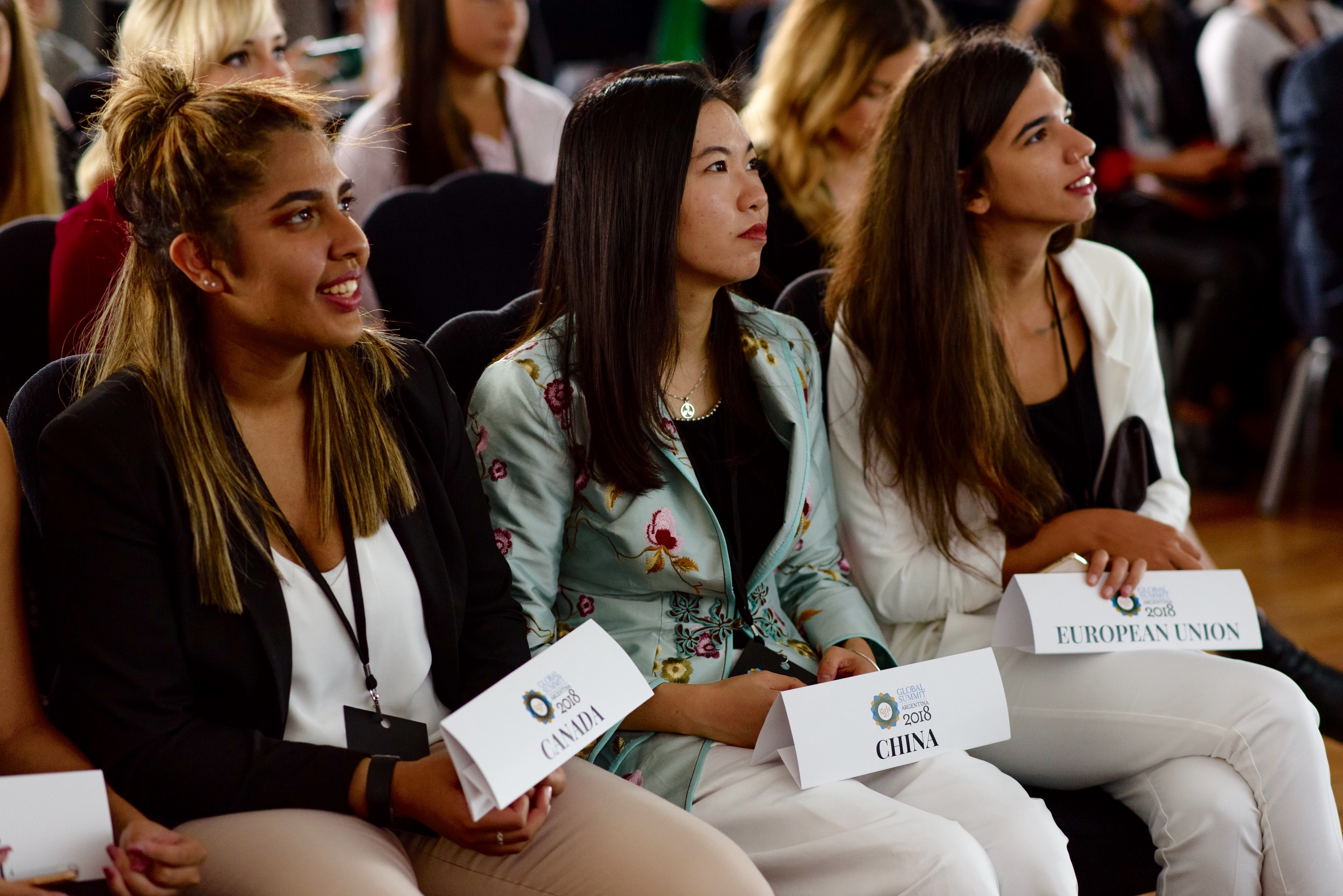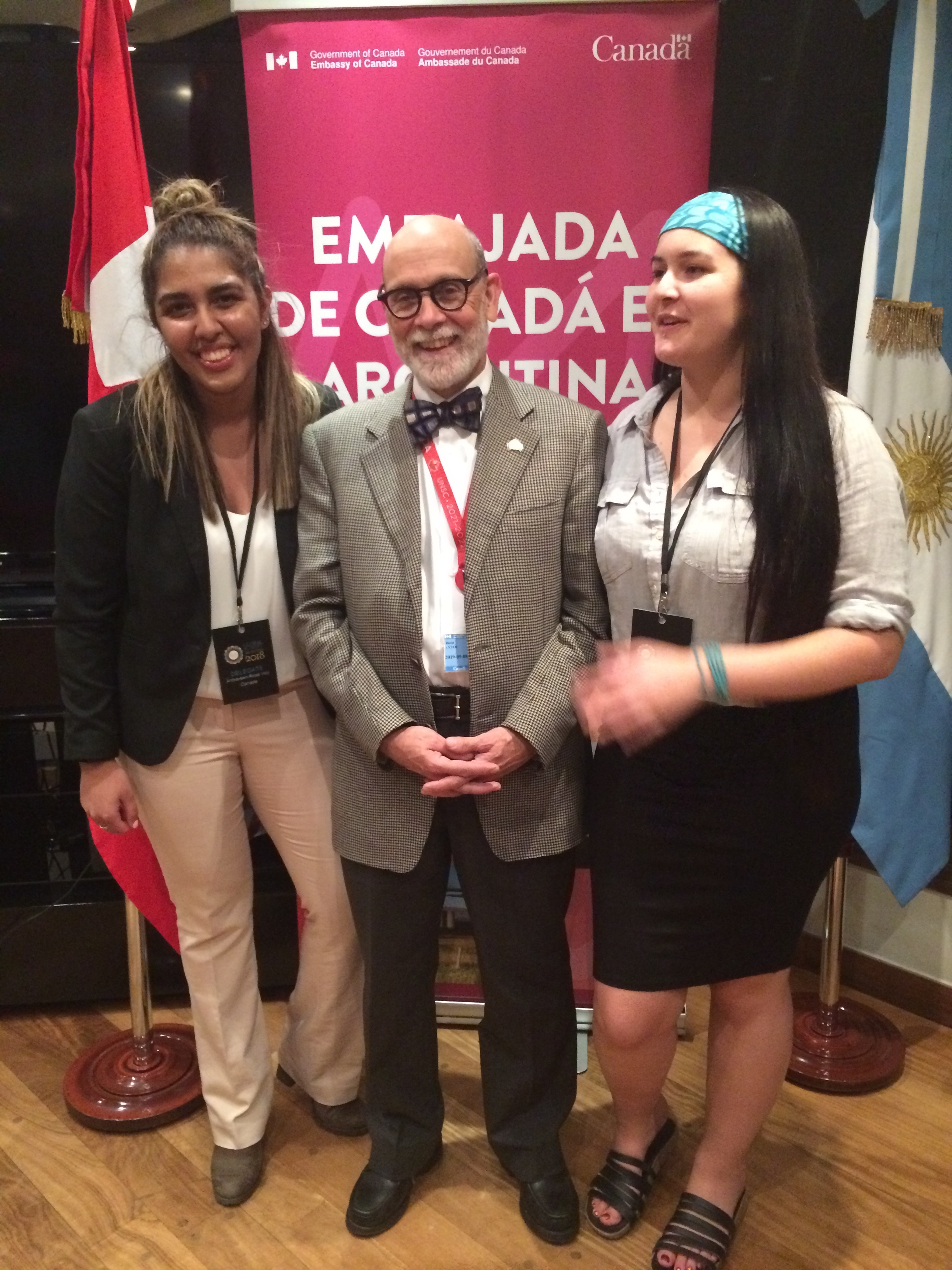When the annual G(irls)20 Global Summit met this October in Argentina, fourth year student of the University of Toronto's Faculty of Kinesiology and Physical Education Ambareen-Rose Velji was among the 24 international delegates, representing Canada. Launched in 2009 at the Clinton Global Initiative, G(irls)20 aims to empower girls and women to be agents of economic and social change.

Fourth year student of Kinesiology and Physical Education Ambareen-Rose Velji represented Canada at the 2018 G(irls)20 Summit in Buenos Aires, Argentina
Velji’s application was greatly helped by the research she had been doing with KPE Professor Catherine Sabiston, focusing on girls’ participation in sport and body image.
“I think that definitely gave me a leg up, as it demonstrated my knowledge about prominent issues surrounding girl’s health and what I could uniquely contribute if given the opportunity,” says Velji.
For example, part of the role of would be delegates was to create policy recommendations for increased participation of girls in digital, rural or financial spaces. Velji chose to contribute recommendations towards digital inclusion, specifically girls’ health, safety and representation in that space. Her recommendations were based on her research on body image disturbances, eating disorders and mental illnesses resulting from unrealistic societal expectations of the body, and the role sport can play to combat unhealthy ideals in girls.
“My background as an athlete, kinesiology student, researcher and future author (Velji is writing a book on her personal journey with weight and body image) all came together full circle,” she says.
Velji played competitive sport for 14 years, coming close to playing for team Canada’s floorball team. She went into kinesiology driven by the idea of studying movement, sport and physical activity. But, she was equally excited to learn about sport psychology and nutrition.
“Going through rehabilitation from sport injuries peaked my interest in anatomy, high performance and recovery,” says Velji. “During my competitive sport years, as I grew older and began to move up in skill level, my dad became my mental coach. That’s when I began to be more interested in the mental side of being an athlete.”
Working in Professor Sabiston’s lab, Velji worked on a study focused on girl's body image and the reasons for drop out among girls in sport. She collected videos and resources that exist on helping foster positive body image, and analyzed them for valuable information to inform future intervention work.
“She has a passion for girls’ health and well-being, and a personal interest in body image, so it was a natural fit for her,” says Sabiston.

Velji with the Canadian ambassador to Argentina and the First Nations' delegate
Velji describes her experience at the G(irls)20 Summit as life changing.
“There was something so powerful, empowering and inspiring about being in a room with 23 other female delegates from across the globe, working together on levelling the playing field for girls, empowering them to be confident and independent, and providing them with equal opportunity to contribute to whatever field they feel passionate about, from politics and economics to medicine.”
Over a week in Buenos Aires, the delegates attended workshops, participated in panel discussions with international experts, and voted on the topics that will be included in the final G(irls)20 Communiqué, creating a set of policy recommendations on increasing the participation of girls through digital, financial and rural inclusion.
“Developing a communiqué was such a unique experience, because I learned about how decisions are actually made on a global level between countries,” says Velji.
The communiqué was presented to Argentina's G20 Sherpa, Pedro Villagra Delgado, who will bring it before the G20, an international forum for governments and central bank governors that served as a model for the G(irls)20 Summit.
The delegates also learned how to develop a strategy and pitch their post summit impact initiatives when they return to their home countries. Velji’s initiative is centred on building a camp called Shatter, which would offer leadership workshops to girls from low-income families in Canada, using sport as the driving vehicle. Through her initiative she also wants to increase participation of girls in science, technology, engineering and mathematics (STEM), working with companies to provide volunteer/intern opportunities for participants of her camp.
“It was an absolute honour to represent Canada at the G(irls)20 Summit. I have never felt more proud to be a Canadian nor have I ever felt more confident in what I have to do to shatter the ceiling for other young girls,” says Velji. “This has been the best experience of my 20 year life and I can’t wait to be the change maker, who helps close the gender gap.”

Velji went on Breakfast TV on November 6 to discuss her experience at the G(irls)20 Summit in Argentina (photo provided by AR Velji)
